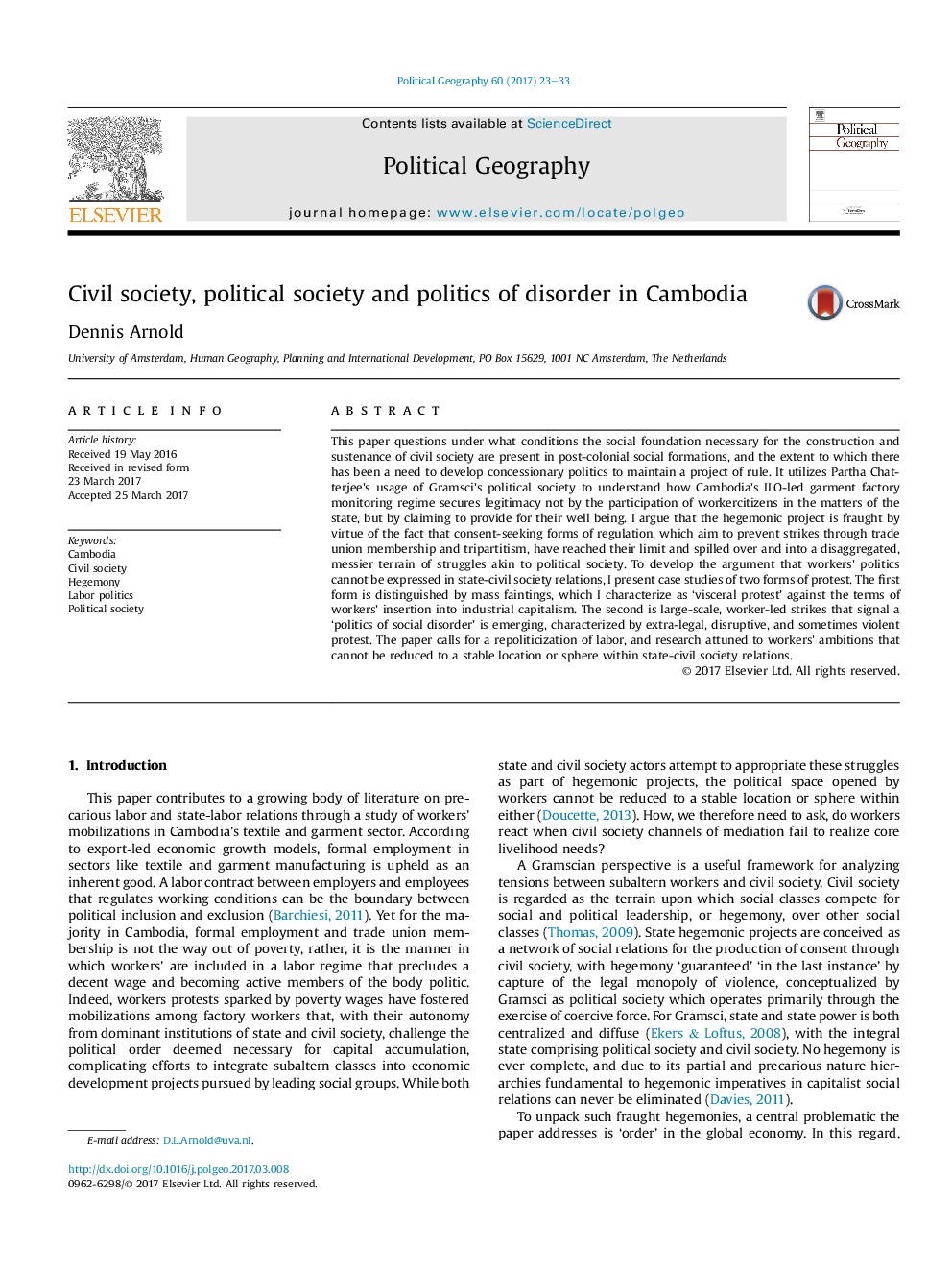ترجمه فارسی عنوان مقاله
جامعه مدنی، جامعه سیاسی و سیاست اختلال در کامبوج
عنوان انگلیسی
Civil society, political society and politics of disorder in Cambodia
| کد مقاله | سال انتشار | تعداد صفحات مقاله انگلیسی |
|---|---|---|
| 94235 | 2017 | 11 صفحه PDF |
منبع

Publisher : Elsevier - Science Direct (الزویر - ساینس دایرکت)
Journal : Political Geography, Volume 60, September 2017, Pages 23-33
ترجمه کلمات کلیدی
کامبوج، جامعه مدنی، هژمونی، سیاست کار، جامعه سیاسی،
کلمات کلیدی انگلیسی
Cambodia; Civil society; Hegemony; Labor politics; Political society;

